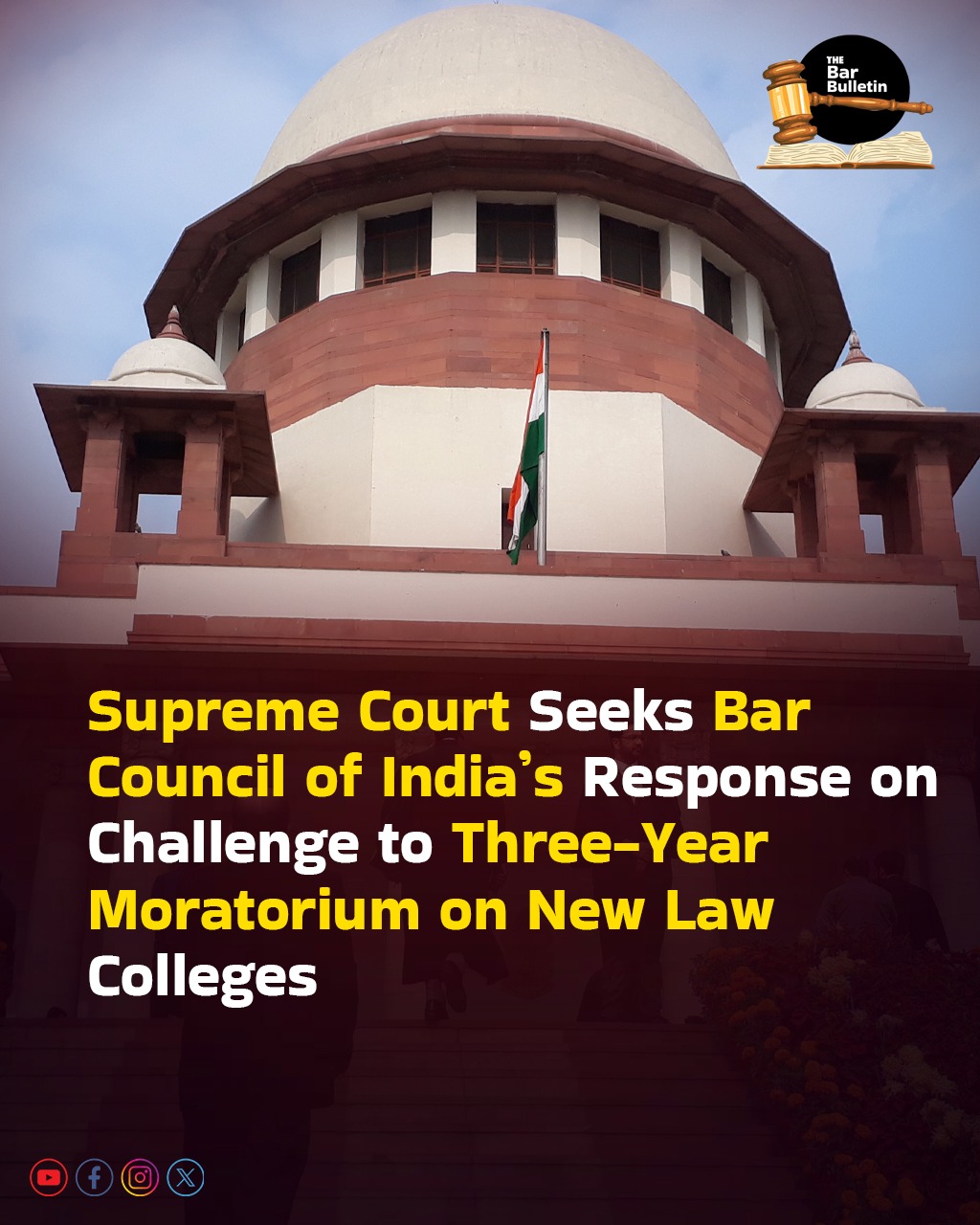The Supreme Court of India sought the response of the Bar Council of India (BCI) to a writ petition challenging the BCI’s recently-imposed three-year moratorium on the establishment of new law colleges across the country.
The contentious measure was introduced as part of BCI’s “Rules of Legal Education, Moratorium (Three-Year Moratorium) with respect to Centres of Legal Education, 2025”. It places a blanket ban on permissions for new law institutions and on expanding existing centres, including introduction of new sections, courses, or batches, without prior BCI approval during the moratorium period. The BCI has publicly stated that this freeze is designed to curb the unchecked mushrooming of substandard institutions and to uphold the integrity and standard of legal education in India.
The petitioner, advocate Jatin Sharma, has contended that the uniform embargo is arbitrary, disproportionate, and violates Articles 14, 19(1)(g), and 21 of the Constitution. He argues that the measure deprives deserving students of access to legal education and penalises compliant or high-quality institutions, especially in aspirational and underserved districts. Instead of a total freeze, the petition proposes targeted, region-specific and transparent regulatory actions that could weed out non-compliant institutions without suppressing genuine and innovative proposals.
The plea further highlights practical alternatives such as enforcement of stricter inspections, accountability, targeted sanctions such as intake caps and derecognition of erring colleges, and periodic compliance audits, rather than an all-encompassing embargo. The petitioner also suggests reconstituting the BCI’s Legal Education and Curriculum Development Committees to include sitting or retired judges, senior advocates, and academicians.
During the hearing, the Bench comprising Justice Vikram Nath and Justice Sandeep Mehta issued notice to the Bar Council of India and other authorities, seeking a detailed response to the concerns raised, within four weeks.



